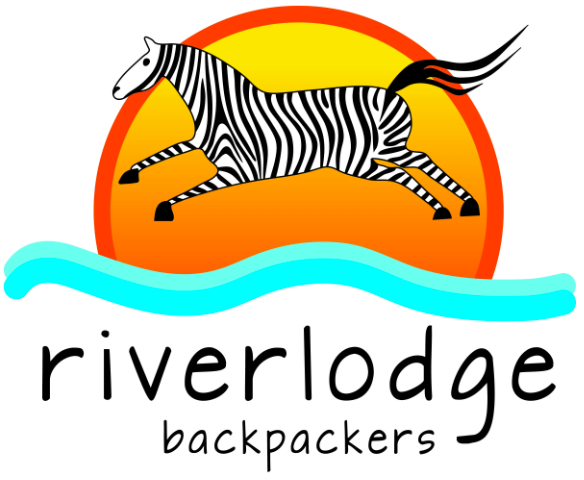Critical Updates On Cape Town's Water Crisis - How It Affects Us
By Saskia CarelseCape Town's Water Restrictions & How It Affects Us
Most of you will know Cape Town's current water situation. The topic frequently makes headlines on the news and is also spread all across social media. It's important for us to educate ourselves on the current regulations regarding water usage - otherwise you may be presented with a hefty fine!
If you are not quite familiar with where we currently stand, the City of Cape Town has implemented Level 5 Water Restrictions, which was effective from 3 September 2017 until further notice.
It is quite a serious situation we find ourselves in, which is why Riverlodge Backpackers has taken it upon ourselves to act in line with the restrictions. In an effort to meet the current legislation, we are going to restrict showers to 3 minutes per person and only between the hours of 6am-9am and 4pm-8pm.
We urge our guests to take Cape Town's water restrictions seriously, not only for the implications it may cost our hostel, but also for the sake of our dam levels and our city as a whole. Find out more about level 5 water restrictions below.
Restrictions applicable to all people utilising Municipal water:
- All water users are required to use no more than 87 litres of municipal drinking water per person per day in total irrespective of whether you are at home, work or elsewhere. No watering/irrigation with municipal drinking water allowed. This includes watering/irrigation of flower beds, lawns, vegetables, agricultural crops, other plants, sports fields, golf courses, schools, educational facilities, nurseries, parks and other open spaces, customers involved in agricultural activities, etc. (Nurseries and customers involved in agricultural activities or with historical gardens may apply for exemption.
- City departments may only water/irrigate sports fields, parks, etc. using non-drinking water and upon agreement of days and times with the Water and Sanitation department.
- Facilities/customers making use of borehole water, treated effluent water, spring water or wellpoints are encouraged not to water/irrigate within seven days after rainfall that provided adequate saturation.
- All boreholes and wellpoints must be registered with the City and must display the official City of Cape Town signage clearly visible from a public thoroughfare.
- Borehole/wellpoint water must be used efficiently to avoid wastage and evaporation. Borehole/wellpoint water users are strongly encouraged to water/irrigate only on Tuesdays and Saturdays before 09:00 or after 18:00 for a maximum of one hour.
- All properties where alternative, non-drinking water resources are used (including rainwater harvesting, greywater, treated effluent water and spring water) must display signage to this effect clearly visible from a public thoroughfare.
- No washing or hosing down of hard-surfaced or paved areas with municipal drinking water allowed. Users, such as abattoirs, food processing industries, care facilities, animal shelters and other industries or facilities with special needs (health/safety related only) must apply for exemption.
- The use of municipal drinking water for ornamental water fountains or water features is prohibited.
- No topping up (manual/automatic) of swimming pools with municipal drinking water is allowed, even if fitted with a pool cover. This includes the filling of new pools or the refilling of an existing pool after a repair. This applies to all pools, including public pools and pools at clubs, businesses and institutions.
Restrictions applicable to all residential utilisers of Municipal water:
- Single residential properties (domestic full tariff category) consuming more than 20 000 litres per month will be fined. )
- Cluster developments (e.g. flats and housing complexes) consuming more than an average of 20 000 litres per residential unit per month will be fined.
- No washing of vehicles, trailers, caravans or boats with municipal drinking water allowed. These must be washed with non-drinking water or cleaned with waterless products or dry steam cleaning processes.
- Customers are strongly encouraged to install water efficient parts, fittings and technologies to minimise water use at all taps, showerheads and other plumbing components.
- You are encouraged to flush toilets (e.g. manually using a bucket) with greywater, rainwater or other non-drinking water.
- The use of portable or any temporary play pools is prohibited.
- No increase of the indigent water allocation over and above the free 350 litres a day will be granted, unless through prior application and permission for specific events such as burial ceremonies.
Restrictions applicable to non-residential utilisers of Municipal water:
- All commercial properties must ensure that their monthly consumption of municipal drinking water is reduced by 20% compared to consumption for the previous year.
- All agricultural users must ensure that their monthly consumption of municipal drinking water is reduced by 30% compared to consumption for the previous year.
- No washing of vehicles (including taxis), trailers, caravans and boats with municipal drinking water allowed. These must be washed with non-drinking water or cleaned with waterless products or dry steam cleaning processes. This applies to both formal and informal car washes.
- The operation of spray parks is prohibited.
- Customers must install water efficient parts, fittings and technologies to minimise water use at all taps, showerheads and other plumbing components in public places and adhere to Water By-law requirements.
- No new landscaping or sports fields may be established, except if irrigated only with non-drinking water.
- For users supplied with water in terms of special contracts (notarial deeds, water service intermediaries or water service providers), the contract conditions shall apply.

